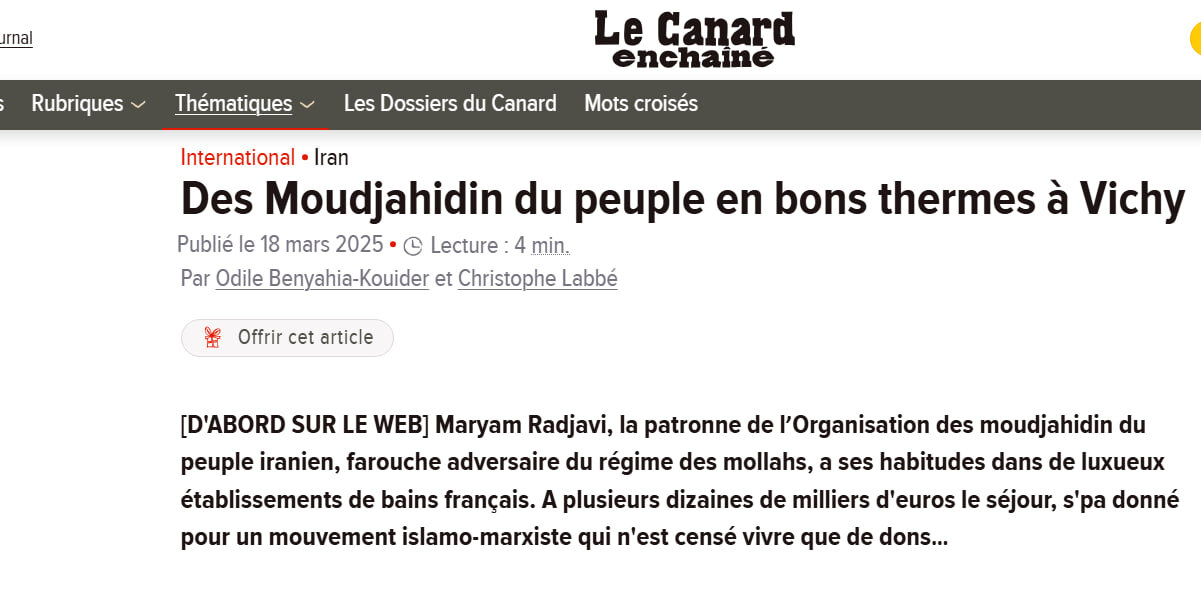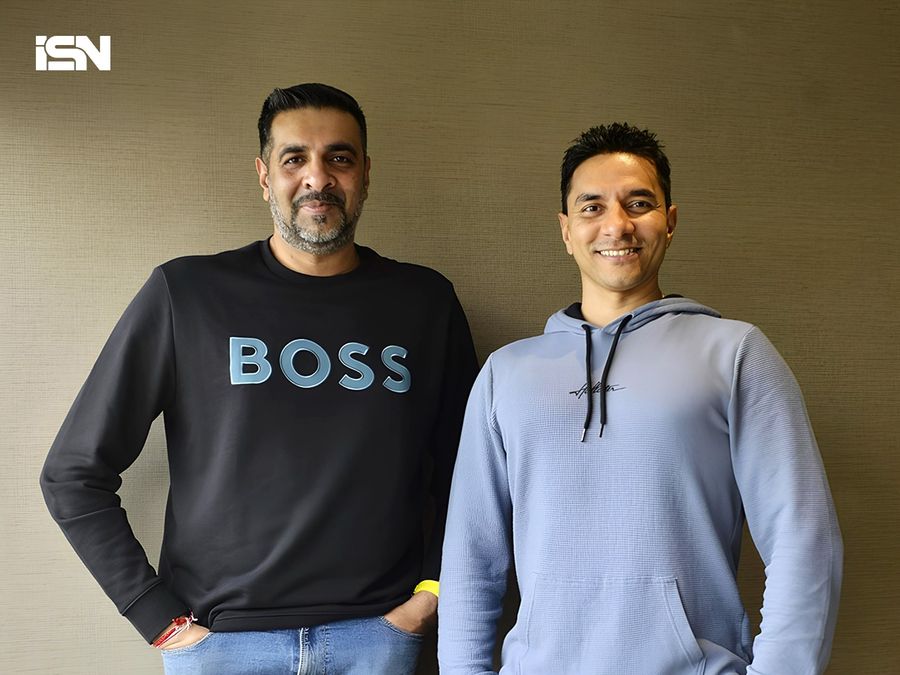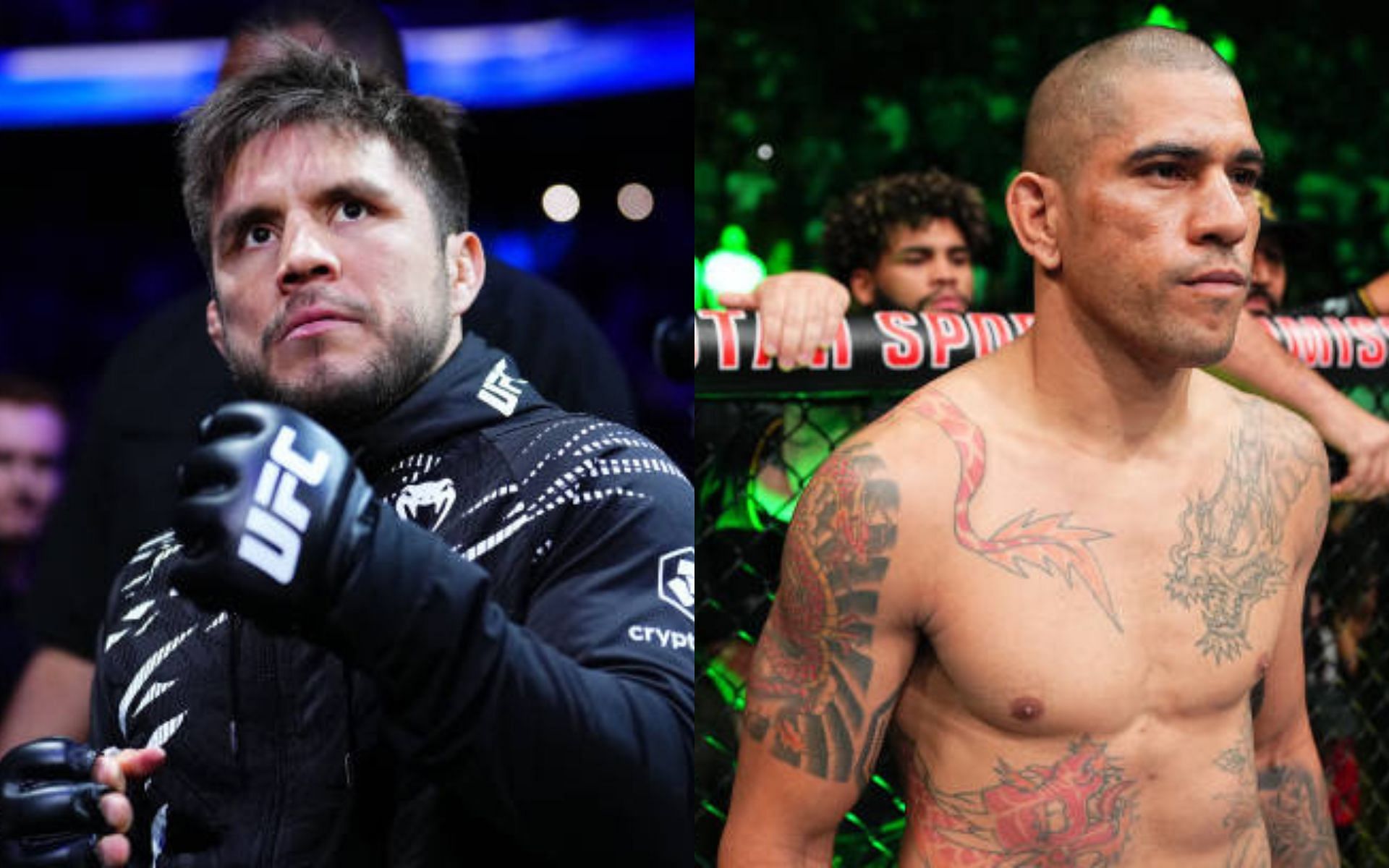Exclusive: French Media Unveils Lavish Life of Maryam Rajavi, Reveals Husband's Long-Hidden Fate
Lifestyle
2025-03-22 16:13:58Content

In a revealing exposé published by the French weekly Le Canard enchaîné, Maryam Rajavi, the controversial leader of the Mujahideen-e-Khalq (MEK) organization, has been accused of living a life of extraordinary luxury that starkly contrasts with the modest circumstances of her organization's rank-and-file members.
The report highlights a dramatic disconnect between Rajavi's lavish lifestyle and the austere conditions endured by her followers. While the organization's members reportedly live in spartan conditions, Rajavi is said to enjoy significant personal comforts and privileges that stand in sharp contradiction to the revolutionary rhetoric she espouses.
This latest revelation adds to the ongoing scrutiny of the MEK's internal dynamics and leadership practices, raising questions about the organization's true commitment to its professed ideological principles. The exposé suggests a significant gap between the public image of revolutionary solidarity and the private reality of the group's leadership.
The report is likely to intensify existing debates about the MEK's organizational structure and the authenticity of its leadership's commitment to its stated goals and principles.
Luxury and Controversy: Inside the Lavish Lifestyle of a Terrorist Organization's Leader
In the complex world of political dissidence and organizational leadership, few stories are as intriguing as the revelations surrounding Maryam Rajavi, the prominent figurehead of the Mujahideen-e-Khalq (MEK) organization. Recent investigative journalism has shed light on a stark contrast between the proclaimed revolutionary ideals and the personal lifestyle of this controversial leader.Exposing the Hidden Realities of Political Leadership
The Opulent Existence Behind Revolutionary Rhetoric
The French weekly Le Canard enchaîné has uncovered a compelling narrative that challenges the public perception of revolutionary leadership. Maryam Rajavi, long portrayed as a champion of political change, appears to live a life of extraordinary privilege that stands in sharp contrast to the austere conditions experienced by her organization's rank-and-file members. This revelation strikes at the heart of organizational credibility, exposing a profound disconnect between revolutionary rhetoric and personal practice. The disparity between Rajavi's lifestyle and the experiences of her followers reveals a complex dynamic of power and privilege within the MEK. While the organization presents itself as a movement of collective struggle, the leadership appears to enjoy significant material comforts that are systematically denied to ordinary members. This contradiction raises critical questions about the authenticity of the organization's ideological commitments.Organizational Dynamics and Leadership Contradictions
The investigation unveils a nuanced portrait of organizational leadership that goes beyond simple political narratives. Rajavi's luxurious lifestyle represents more than just personal indulgence; it symbolizes a broader pattern of hierarchical privilege within political movements that claim to champion egalitarian ideals. The stark contrast between the leader's comfort and the sacrifices demanded of followers exposes fundamental tensions within the organization's internal structure. Financial resources that could potentially support the organization's stated goals appear to be channeled into maintaining an extravagant lifestyle for its leadership. This revelation challenges the moral authority of the MEK and raises significant questions about the genuine motivations driving its political agenda. The disconnect between proclaimed revolutionary principles and actual lived experiences undermines the organization's credibility.Psychological Mechanisms of Organizational Control
The maintenance of such a lifestyle amid claims of revolutionary struggle suggests sophisticated psychological mechanisms of control. By creating a significant material gap between leadership and membership, organizations like the MEK can potentially manipulate followers' perceptions and maintain hierarchical structures. The luxurious existence of leaders serves as a form of psychological distancing, reinforcing power dynamics that prevent genuine collective empowerment. This approach relies on complex psychological strategies that normalize inequality within the organization. Members may be conditioned to accept disparities through carefully constructed narratives of sacrifice and revolutionary commitment. The leadership's lifestyle becomes a form of unspoken reward, simultaneously motivating and controlling the organizational ecosystem.International Implications and Political Scrutiny
The revelations by Le Canard enchaîné extend beyond internal organizational dynamics, inviting international political scrutiny. Such exposés challenge the legitimacy of organizations that position themselves as alternative political movements, particularly those operating in complex geopolitical landscapes. The disconnect between revolutionary rhetoric and personal privilege becomes a critical lens through which international observers can evaluate the authenticity of political dissidence. For diplomatic and political actors, these insights provide valuable context for understanding the complex motivations and internal mechanisms of organizations like the MEK. The lifestyle of its leadership becomes a crucial indicator of the movement's true nature, potentially influencing international perceptions and political engagements.RELATED NEWS
Lifestyle

The Silent Decline: How Our Daily Habits Are Stealing Years from Our Lives
2025-02-25 11:15:07
Lifestyle

Wellness Guru Luke Coutinho's E-Commerce Venture Elevates Leadership: Strategic Hires Signal Major Growth
2025-03-27 12:13:29
Lifestyle

Comfort Canine: Adorable Golden Retriever Puppy Channels Inner Linus in Heartwarming Blanket Saga
2025-05-02 02:00:00





